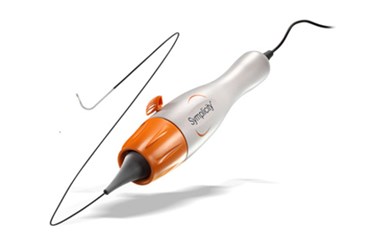Medtronic Committed To Renal Denervation Despite Failed Trial

By Ryan Brinks
Medtronic announced Sunday that it will press on with development of its Symplicity renal denervation system despite its surprising failure in a large U.S. clinical trial.
The first detailed results of the Medtronic study were presented Saturday at the American College of Cardiology's annual meeting. The results were also published in the New England Journal of Medicine, according to a Wall Street Journal report.
An editorial in the same issue of the medical journal described Symplicity's advantage as “paltry” and claimed the results bring “the renal denervation train to a grinding halt,” the WSJ article noted.
Although Medtronic leaders also acknowledged the trial's failure in January, they now see things differently.
“We've seen enough positive clinical signals that this therapy warrants further investigation,” Nina Goodheart, VP of renal denervation at Medtronic, told WSJ. “Are we willing to invest in another clinical trial? Yes.”
Those positive signals included suggestions that the system might benefit specific types of patients and that procedures may not have been followed correctly or completely during the study.
Goodheart said that Medtronic is in discussions with the U.S. FDA concerning the next steps for a new clinical trial. The trial will seek more than 5,000 patients in at least 200 centers, with five-year follow-up, according to Medtronic's news release. The failed trial of 1,000 patients, described by Medtronic as “the first and only blinded, randomized, sham-controlled study of renal denervation for treatment-resistant hypertension,” met its primary safety endpoint but did not meet its primary or powered secondary efficacy endpoints.
Previous Symplicity studies, combined with approval in Europe, had shown dramatic improvements in hypertension for patients who hadn't been prescribed drugs. On Sunday, Medtronic also presented further analysis of the trial that allegedly demonstrates the safety of the system.
The perspectives of cardiologists included in the WSJ article, however, give reason for both pause and disappointment.
“The sobering results of the Symplicity trial cut through the fog of hope and hype in renal denervation,” said Sanjay Kaul, a cardiologist at Cedars-Sinai Medical Center in Los Angeles.
It will be interesting to see how Medtronic's competitors St. Jude Medical and Covidien respond to this news. The companies halted their development and testing of renal denervation systems, citing the expectation of an approved competitive system on the market and slower-than-expected market conditions as reasons for concern. St. Jude plans to reconfigure its clinical trial, and Covidien will exit its program while continuing to explore long-term opportunities in the hypertension market.
Image Credit: Medtronic
